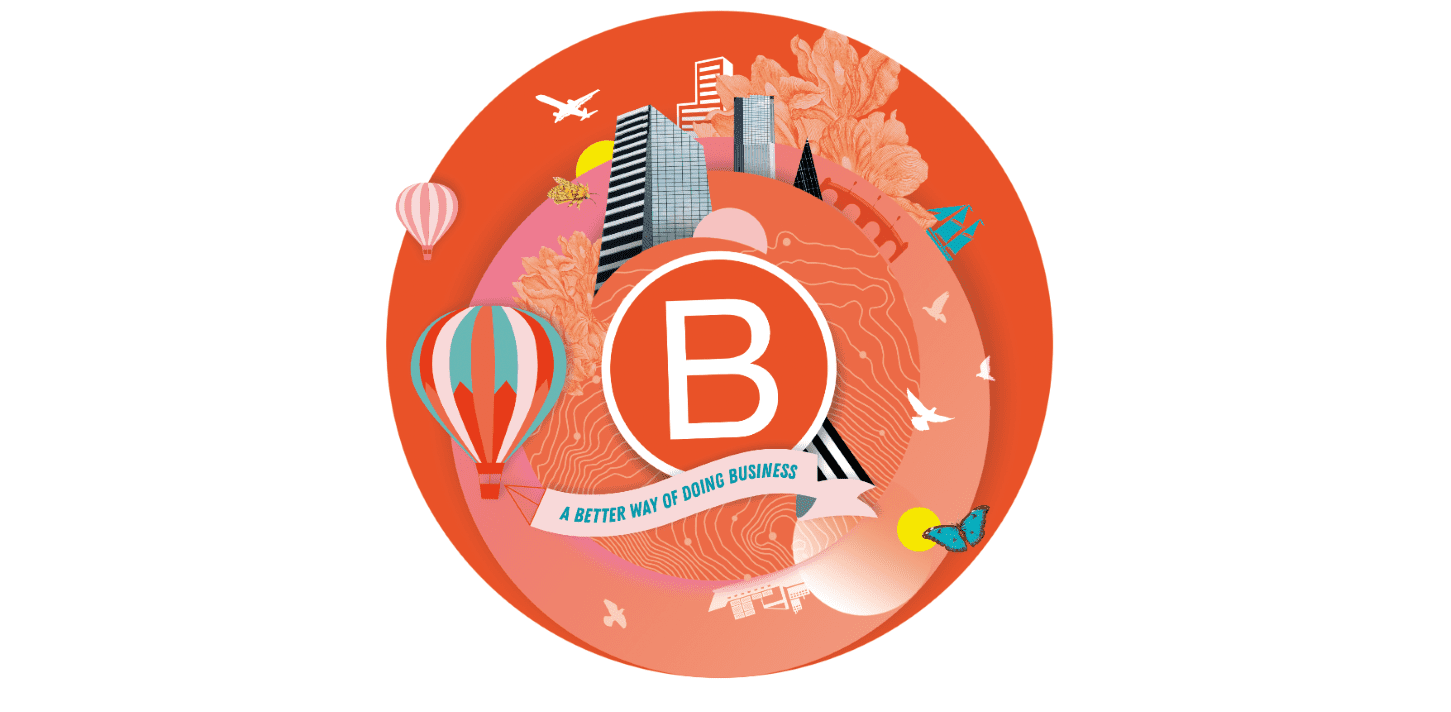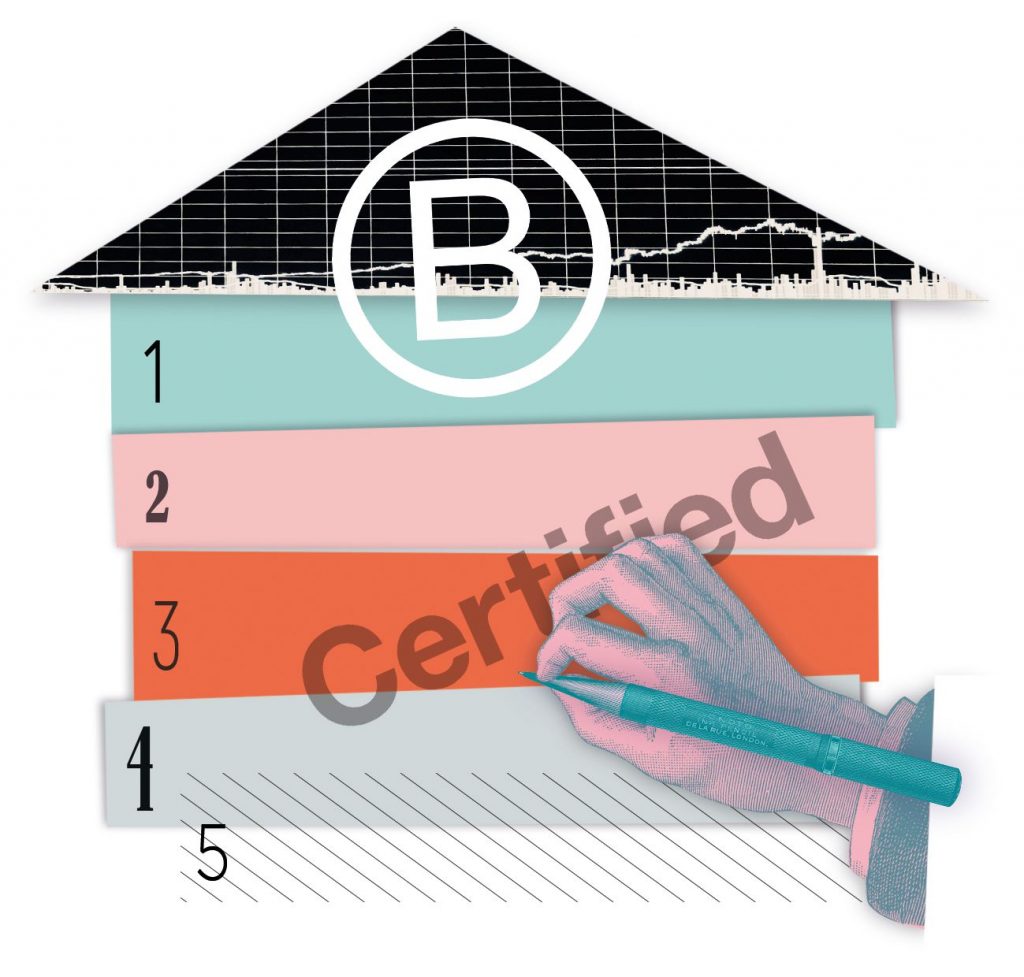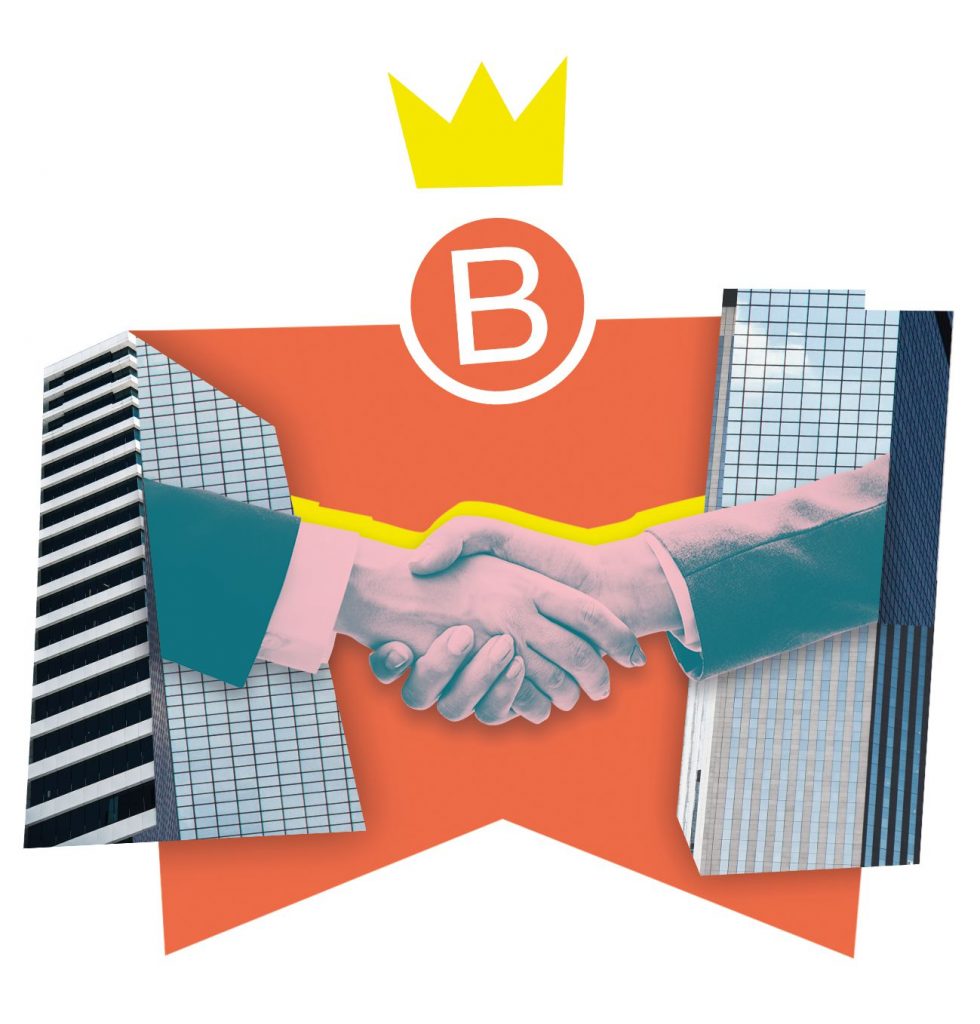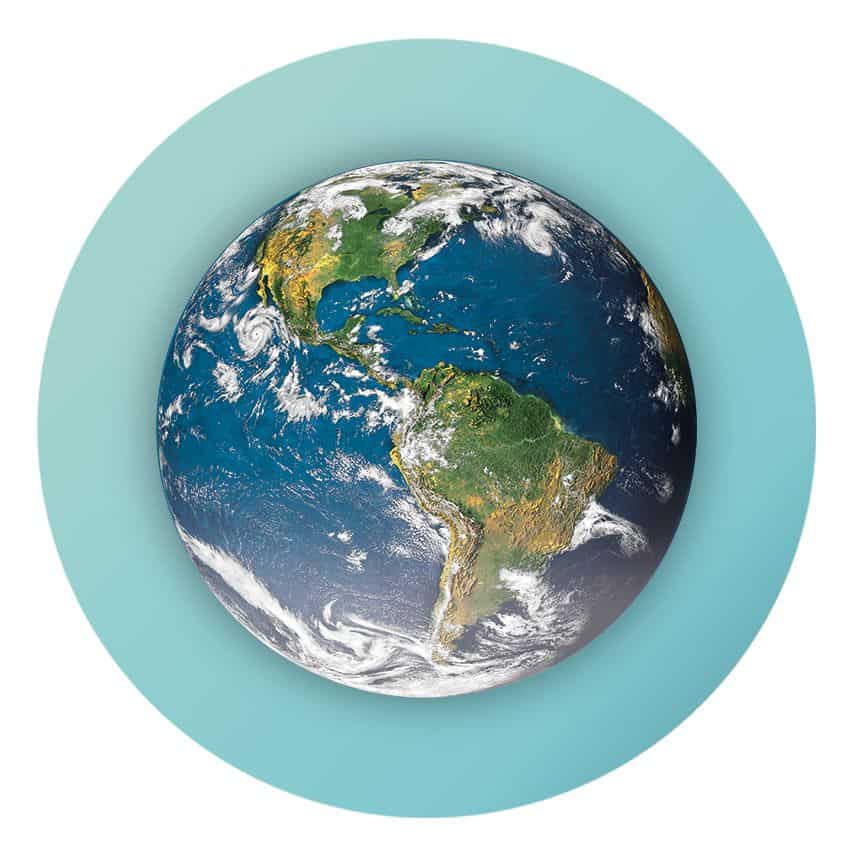10 questions about the B Corp label

1. What is it?
Bénédicte Faivre-Tavignot (H.88), chairman of the HEC Master in Sustainable Development program, replies:
Created in the United States in 2006, B Corp certification is accorded to for-profit companies who meet certain social, environmental, transparency and governance standards. Certification is awarded by the NGO B Lab if the company that has asked to be certified achieves a score of more than 80/200 in an evaluation using the BIA, the B Impact Assessment online program (https://bimpactassessment.net). This evaluation, which must be repeated every three years, paints a fairly detailed picture of a company’s non-financial performance, and a company can use the results to compare itself to other companies. In addition to the certification process, B Corp is an international effort that aims to influence policy decisions. As of the beginning of 2019, more than 2,800 companies have been certified (out of a total of around 80,000 candidate companies), in more than 60 countries and more than 150 business sectors.
2. What companies have already been certified?
Alain Etienne (H.17), co-founder of Kazidomi, an e-commerce organic-products site that is currently undergoing certification, replies:
Most of them are small and medium-sized companies that are not well known by the general public, but some are big names like the clothing brand Patagonia, Ben & Jerry’s ice cream, and Seventh Generation detergent. These companies have long been recognized for their social commitments and the B Corps label just confirms this reputation. A few surprising names have now entered the list, including listed companies like Danone, thanks to a push by its CEO Emmanuel Faber (H.86). The three sectors that are most represented are food, training and clothing. Certain activities, like the management of prisons, zoos and aquariums, are not eligible for certification. An oil company, on the other hand, is theoretically eligible. In that case, though, the company will have to prove that it has a positive social impact and that it has made a significant effort to develop renewable energies.

3. Why do companies want to be certified by B Corp?
Philippe Platon (H.91), former financial and human-resources director at La Ruche qui dit oui, replies:
To take La Ruche qui dit oui as an example, as a start-up it had already, in 2012, obtained official government recognition as a “Social Economy Enterprise” (ESUS). To achieve this, we included social goals in our statutes, adopted a tight salary scale, and reinvested our profits in the company’s activities. But as we say in the world of cooperatives, “statutes aren’t virtues”. So, we decided to get B Corp certification so that we would have a way to evaluate and compare our company’s socially responsible practices, such as our commitment to offering organic food, ensuring better quality of life for farmers, promoting shorter supply chains, etc.
La Ruche qui dit oui’s success depends on how credible its mission is. B Corp contributes to this credibility, even though for the moment this certification is not well known in Europe. We found that the ESUS designation was a bit marginalizing in that its approach is basically negative, since it’s based on condemning capitalism’s excesses. B Corp certification, in contrast, lets us demonstrate our positive commitment to society and the environment, in line with the company’s mission statement. The idea isn’t to withdraw from the marketplace but rather to make money while adhering to certain values. As a B Corp slogan puts it, “Business is no longer a bad word.”
4. Is it complicated or costly to get certified?
Victor Lugger (H.08), co-founder of Big Mamma restaurants, which was recently certified, replies:
The B Corp audit is very professional, and costs are moderate and adapted to a company’s size: 10,000 euros per year in our case. What can be complicated is making the organizational changes necessary to shake things up in a company so that it can be managed more sustainably. My advice: the head of the company should oversee the process. At Big Momma, this responsibility is held by one of the two co-founders directly, and our B Corp score is one of the five performance indicators that our stockholders check, along with customer satisfaction, for example. So, obviously, our teams are really motivated!
It took us about eight months to be certified in 2018. Around 15 people were directly involved in the process, but certain changes were undertaken by all employees in our restaurants. This didn’t affect our 2018 budget at all: the changes we had to make – for example making sure men and women are equally represented on the Executive Committee and requiring our Italian suppliers to sign a detailed charter – didn’t cost us anything. Even though we’re well above the 80 points needed to get certified, we continue to make improvements. This year we decided to allocate 150,000 euros of our budget toward increasing our energy-efficiency. This is an investment that will be profitable over the long term.

5. On what criteria is the certification based?
Laurence Lamoureux Grandcolas (H.06), founder of MySezame, which was certified in 2018, replies:
The B Corp questionnaire has five categories: the company’s impact on the environment, salaried workers, communities and customers, and finally the company’s approach to governance. The 200 questions touched on the commitment of everyone involved in the company, including our suppliers. Some questions required a written answer, for example a description of the company’s mission, but most were multiple choice. A company has to be able to supply certain documentation to B Corp, which takes time, but which guarantees that the process is fully transparent. Some categories and answers generate more points than others. The questionnaire is reviewed by an independent committee every 18 months, which forces companies to make improvements from one certification to the next!
MySezame started the process at the beginning of 2018, and it caused us to ask ourselves questions about our practices. Twenty of the questions led us to make internal changes. For example, we established a guide for salaried workers in order to answer “yes” to a question about this, because we felt that a guide like this was a real driver toward inclusion and transparency. There was also a question about partnerships with banks, which we hadn’t realized could have an effect on suppliers. As a result, we decided to work with La Nef (note: an ethical banking cooperative) to get a loan to finance the development of a digital product.
6. Who is behind B Lab?
Jean-Christophe Laugée, associate professor at HEC and consultant on the inclusive economy at Hystra, replies:
B Lab, the NGO that delivers B Corp certification, was founded by three entrepreneurs: Bart Houlahan, Jay Coen Gilbert and Andrew Kassoy. Bart Houlahan had previously headed AND 1, a basketball-equipment company. It was sold to investors who then reduced costs by lowering the quality of their products. Bart Houlahan was bitter about this and decided to find a way to prevent “predators” from destroying what made entrepreneurial projects worth doing. The creation of B Lab was also influenced by the ideas of Ed Freeman, for whom a company should not merely generate profits but should also create value for everyone concerned through what he called “shareholder capitalism”.
This academic concept fostered the creation of alternative companies in the United States, for example the “benefit corporation” (different from B Corp certification but also promoted by B Lab). In France, the Pacte law led to an equivalent, the “enterprise à mission”, or “company with a mission”. The B Corp questionnaire is available online for free. It helps companies understand their environmental and social responsibilities. Thanks to the snowball effect of the certification of companies like Patagonia, Nature & Découvertes and Danone, the association is currently having a hard time keeping up with all the applications it’s receiving from candidate companies.

7. What have people criticized about B Corp?
Karen Lemasson (MS.06), head of Corporate Social Responsibility and Open Innovation at Expanscience laboratories (which includes the Mustela brand), replies:
B Corp is a very promising label but so far it is not well known and involves mainly small and medium-sized companies. The Expanscience group, including its 16 international branches, was certified in 2018. Expanscience, a family-owned company with a bit more than 1,000 employees, was until last April the biggest French company to be certified by B Corps! The recent certification of larger companies like Blédina shows that B Corps is making a name for itself. Cities and organizations that support start-ups also have a role to play in building on this progression and fostering an ecosystem of companies with a positive impact. Geneva, for example, set up its “Best for Geneva” program (bestforgeneva.ch)
It’s a shame that no French city has yet started promoting B Corps to its local companies, especially since the BIA questionnaire is available open source, so any company can use it to evaluate its social impact and identify ways it can improve, without having to pay for an audit or certification. It would be helpful, though, to adapt the questionnaire somewhat, since it is closely tied to the culture and regulatory environment of the US. It does not take into account specific local factors or the complexities of international operations. For example, measuring the ethnic diversity of a company’s salaried workers is impossible in France since it’s against the law to collect data on people’s ethnic backgrounds. A working group is currently studying these issues. It will have to determine in what ways the questionnaire should be adapted so that it will still allow for comparisons on an international scale.
8. How is B Corp different from similar certifications?
Emery Jacquillat (H.93), CEO of Camif Matelsom, a distributor of furniture and bedding via the internet:
I took over Camif in 2009 through the Commercial Court. I relaunched the company based on an impact model designed to re-motivate all players: clients, suppliers, salaried workers and markets. In 2015, we became one of the first French companies to be certified by B Corp. We wanted to evaluate and quantify our impact. First, we began a preliminary evaluation based on ISO 26000, but eventually we decided to try for B Corp certification, for four main reasons. The questionnaire is detailed, practical, and adapted to a company’s sector and size. It covers all aspects of a company’s non-financial performance, including the choice of partner banks.
The evaluation is made public in a transparent way, and it’s possible to compare one’s performance with that of other distributors worldwide, based on specific criteria. Certification means joining a group of companies whose management has the same vision – to be profitable while making a positive impact — and exchanging information about what has worked well. It’s great to be part of the same group as Patagonia and Ben & Jerry’s! Finally, B Corp is a dynamic label that continues to evolve over time. We get certified every three years. Between 2015 and 2018, for example, I discovered a new question on including a mission statement about social and environmental impact in a company’s statutes.

©Severine Scaglia
9. Does B Corp certification have a positive impact on a company’s performance?
Blandine Surry (H.99), B Corp Director at Danone, replies:
In 2016, Danone began a partnership with B Lab to come up with a model for certifying multinationals. Since then, the group has announced that it is aiming for global certification by 2030. To date, 14 divisions representing around 30% of the group’s consolidated turnover have been certified. This certification goal is a source of pride and motivation for our employees. It reinforces their sense of the group’s mission on a daily basis and inspires them to be open to transforming things, as a 2018 survey of 100,000 employees concerning the group’s strategy showed.
B Corp certification is also an objective assessment of the group’s social and environmental performance. In 2018, Danone changed its line of credit with a group of 12 banks to include ESG criteria (environmental, social and governance) that have a direct impact on interest rates, either by increasing or decreasing them. A first! One of the factors used to measure this performance is the percentage of Danone’s consolidated turnover that is covered by B Corp certification. Finally, B Corp responds to growing demand among customers for transparency concerning a company’s environmental and social impact. The B Corp label inspires confidence in consumers who are trying to make responsible choices when they buy products.
10. Can B Corp save the world?
Elisabeth Laville (H.88), founder of Utopies (the first French company certified by B Corp, in 2014) and of the B Corp movement in France, replies:
B Corp’s goal is for companies to be a force for positive change in the world! As Michel Serres points out, if we want to save the planet, we need to focus on economics rather than on politics, for it’s economies that destroy nature. From this perspective, B Corp makes a significant contribution. Its philosophy and the content of its questionnaire emphasize that a company’s positive contribution to society, its very reason for being, lies in its efforts to bring about an “ecological transition” of capitalism. Of course we can’t be sure that B Corp will save the world, since it has certified only around 3,000 companies in 64 countries up to now, while there are around three million companies operating in France alone!

And, most of the companies B Corp has certified are small and medium-sized enterprises, while large corporate groups have the biggest impacts. On the other hand, more and more big companies are showing interest in B Corp certification, and obtaining this certification will drive them to be more committed to responsible practices. Innovative smaller companies are thus inspiring bigger ones. Remember what the anthropologist Margaret Mead said, that we should never doubt that a small group of aware and committed individuals can change the world, because this is the only way the world has ever been changed!

Published by Thomas Lestavel

